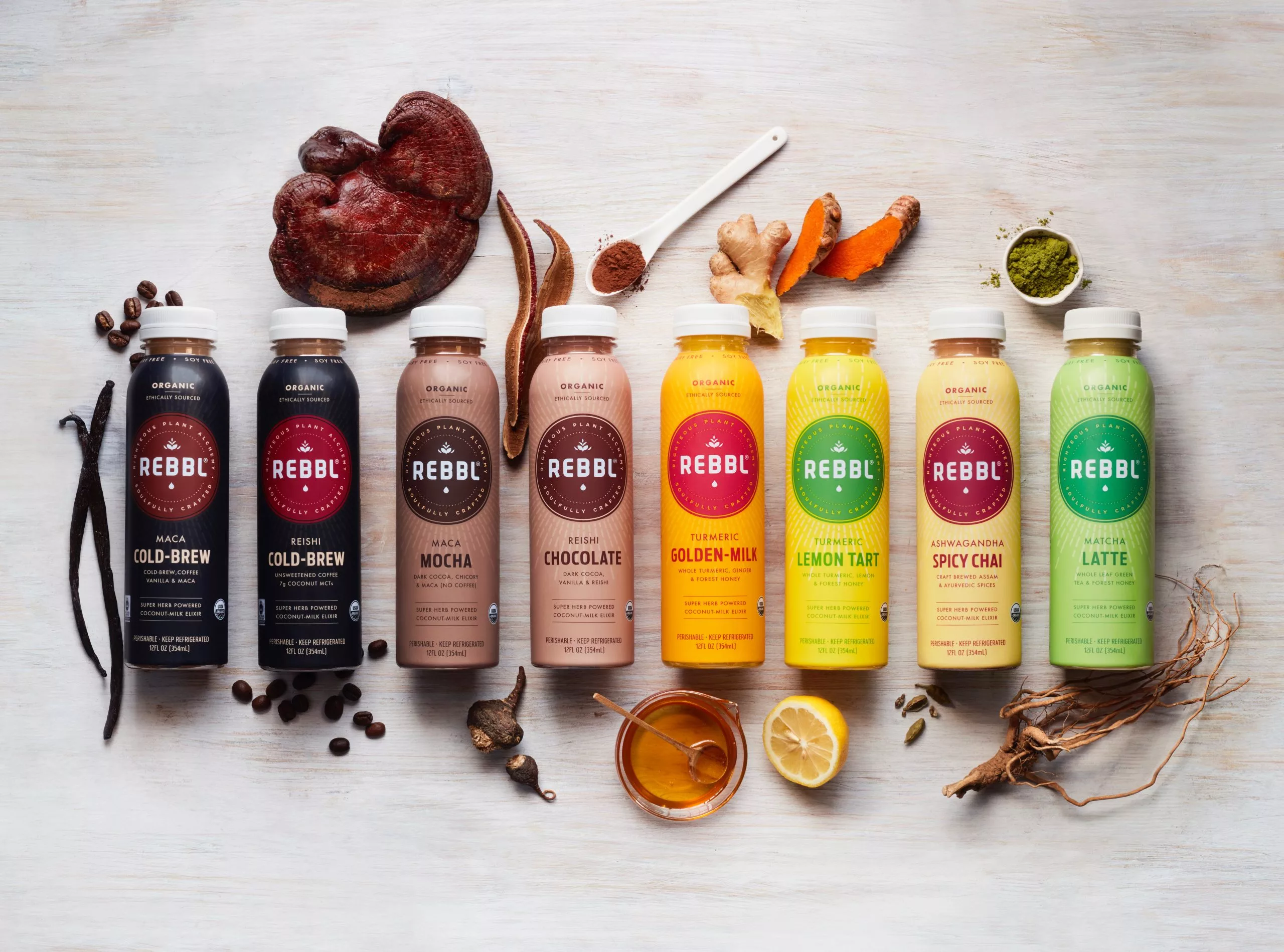At REBBL, sustainability is built into our ethos. We’re constantly working to ensure our organic super-herbs beverages have positive social and environmental impacts. We use nearly 75 ingredients from almost 30 countries, so we see firsthand the ripple effect of our actions.
With our nonprofit partner Not For Sale we work toward co-creating a future without human trafficking — the fastest-growing illegal industry worldwide. We donate 2.5 percent of net sales of every bottle to Not For Sale, and we leverage our business as a tool to support economic, social and ecological sustainability. This holistic approach offers long-term support to vulnerable communities and survivors of trafficking; it also addresses the causes, by supporting growers’ livelihoods and helping them implement regenerative business practices. Economic instability — exacerbated by droughts and other global warming-induced crises — can create desperate conditions that increase vulnerability to trafficking.
Our products and partnership are unique, but all companies have the potential to make a difference. If you want to succeed amid the growing climate crisis and have resources to run your company long term, focus on sustainability. Nielsen surveys, for example, found that millennial consumers expect companies to help the environment.
Here are four things we’re doing at REBBL that could work for any company.
1. Start by asking questions.
Old, autocratic business models contributed to this crisis; we must be willing to question the status quo. At REBBL, we began by asking about our partners’ agricultural, environmental and employment practices — and other factors related to economic stability, like labor rights, clean water and education. We assigned a score, creating a “supplier ethos.” This establishes a baseline to start a conversation and identify growth opportunities for us and suppliers. Regenerative agricultural practices protect farmers’ livelihoods and the ecosystem. Along with the financial investment, this helps insulate communities against trafficking.
Our Banana Nut Protein helps combat deforestation with impact sourcing. The Brazil nuts come from an indigenous community in an area of Peru critical to biodiversity on Earth, where Not for Sale helped the growers get organic and fair-trade certification. This sourcing practice incentivizes protecting old-growth Brazil nut trees, thus preserving the rainforest and providing an economically viable alternative to clear-cutting land for timber or livestock. This exemplifies our regenerative business model – incorporating social, ecological and economic values to ensure well-being for the planet and people.
2. Find community — you’re not in this alone.
As a food business, the vitality of nature is paramount to our success. Conventional agriculture’s one-way relationship with the planet means we’re spending the resources of future generations. To repay this debt, more businesses need to embrace regenerative models that see the world as a living ecosystem, as we’ve learned from thought leader Carol Sanford. No single company can do it alone, so we’re part of OSC2 (One Step Closer 2 an Organic Sustainable Community), a progressive community within our industry that’s evolving from the winner-takes-all model to one that gives back and shifts the paradigm.
Beyond our environmental work with OSC2, REBBL is co-leading an industrywide justice, equity, diversity and inclusion (JEDI) project — to ensure diverse voices are heard, their gifts are included, and marginalized communities are part of decision-making. To truly heal our world, we must make real progress here. The complex issues we face can’t be solved if we’re all looking at them from the same perspective.
3. Think progress, not perfection.
There’s no denying the long journey ahead. I wish I could snap my fingers to make change happen immediately. But I know every step counts, especially with projects like our transportation footprint. Global freight emissions will surpass those from passenger vehicles by 2050; thus, transportation is among the core areas where the Climate Collaborative — another OSC2 initiative — focuses its efforts.
At REBBL, we’ve improved efficiency by consolidating shipments, changing packaging and using existing programs like SmartWay. This free, voluntary program is focused on measuring and improving freight transportation efficiency. Currently, 35 percent of our carriers are SmartWay certified, a number that’s increasing as more join the program. We know this won’t solve the greenhouse gas issue overnight, but it gets us closer than if we held out for one, perfect solution.
4. Consider what your legacy will be.
For REBBL, sustainability starts with sourcing and ends with packaging. On average, packaging accounts for 5 percent of the energy used in a food product’s life cycle, so we’ve looked for ways to reduce our footprint. We want our botanical revolution for good to be our legacy, so we’ll do whatever can to support our founding mission and honor the planet.
We switched from white cardboard cases to natural brown ones, then transitioned to a lighter-strength cardboard to use less overall. We’re also working toward transitioning from virgin plastic (PET) to post-consumer recycled plastic resin (rPET) for bottles. And, we continually explore more ways to use less.
Nearly 46 million people experience some form of modern slavery. We know extreme climate change is inextricably linked to our supply chain and trafficking, so we’re doing whatever we can to reverse its effects. As companies, we need to be boldly humble about this monumental task, to create a positive, lasting legacy.






